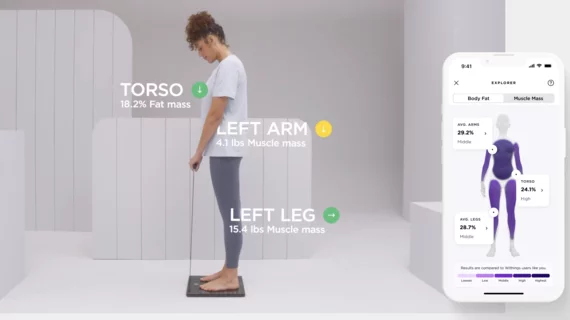FDA clears new smart scale capable of detecting AFib, other cardiovascular issues
Withings, the healthcare technology company known for its remote monitoring devices, announced that the U.S. Food and Drug Administration (FDA) has cleared its newest smart scale, the Body Scan Connected Health Station.
Body Scan includes a high-strength glass platform with four weight sensors and 14 ITO electrodes and a retractable handle that includes four additional stainless steel electrodes for performing 6-lead electrocardiograms. The device evaluates a user’s body composition, heart rate and vascular age, and it was designed to identify any signs of atrial fibrillation (AFib). Body Scan also gives users access to personalized recommendations and can connect directly with a healthcare specialists when needed.
Once Body Scan’s sensors perform an ECG, the devices use advanced artificial intelligence to identify and track heart patterns known to be found in AFib patients. The results are displayed both on the device’s LCD screen and the user’s smartphone application. These results are saved, allowing them to be compared as time goes on, and they can be shared directly with healthcare providers.
Body Scan’s vascular age estimates also are designed to deliver live looks at a user’s cardiovascular health, comparing their own data with the expected averages for their age bracket.
“Withings created the connected health category back in 2009 and today is proud to be the No. 1 selling smart scale manufacturer in the United States, helping millions of users manage their weight,” Eric Carreel, founder and president of Withings, said in a prepared statement. “With Body Scan, we will turn the morning weigh-in into a sophisticated home health check with access to holistic health data and personal health programs created by medical professionals. We will empower our users with the ability to take meaningful actions based on medical-grade data, adding a new dimension to ongoing lifestyle and chronic condition management through the ultimate in-home health experience.”

